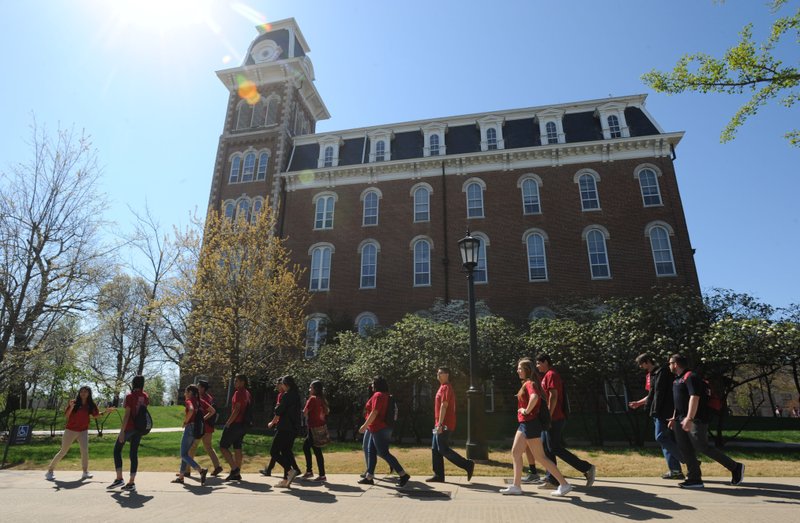FAYETTEVILLE -- An increase in academic misconduct findings at the University of Arkansas, Fayetteville compared with a year earlier can be mostly explained by a spike in the use of unauthorized materials during online exams, a UA official said.
In the 2020-21 academic year, many UA students opted for remote learning in courses even when there was a face-to-face option during the first fall semester of the covid-19 pandemic.
Academic misconduct findings for 2020-21 increased to 675, an increase of 46% compared with the 461 findings in the 2019-20 year.
"The increase is all related to exams and online exams specifically," said Chris Bryson, executive director of UA's Academic Initiatives and Integrity Office.
He said that a student's first offense can result in a zero grade on an assignment, while providing details of a test to other students before an examination can lead to a student failing a class.
The rise in misconduct didn't mean that many more classes had reports of cheating compared with a year earlier, Bryson said.
Instead, there were three separate instances of misconduct in fall 2020 that involved large numbers of students, Bryson said Wednesday at a meeting of UA's faculty senate. These three instances of misconduct involved a total of 231 students, according to a report presented by Bryson.
Data published by some other large universities show that other colleges also saw spikes in academic misconduct.
The University of Georgia had 601 students reported for academic misconduct in fall 2020, up from 228 a year earlier, according to reports on the university's website. Not all of the University of Georgia cases resulted in findings of responsibility.
"Any large college or university that had a robust system like us, where they have an academic integrity policy and an office in place, experienced much higher numbers in terms of cases reported and adjudicated," Bryson said.
The largest share of cases involved misconduct in entry-level classes rather than advanced coursework, Bryson said.
Bryson said presentations are given to first-year students about academic integrity.
Asked during the faculty senate meeting about students' use of GroupMe text messaging, Bryson spoke about faculty and students working together to fight misuse of the technology.
"To me, it's about building a culture where students are holding students accountable and feeling comfortable enough to come share their concerns," Bryson said.

